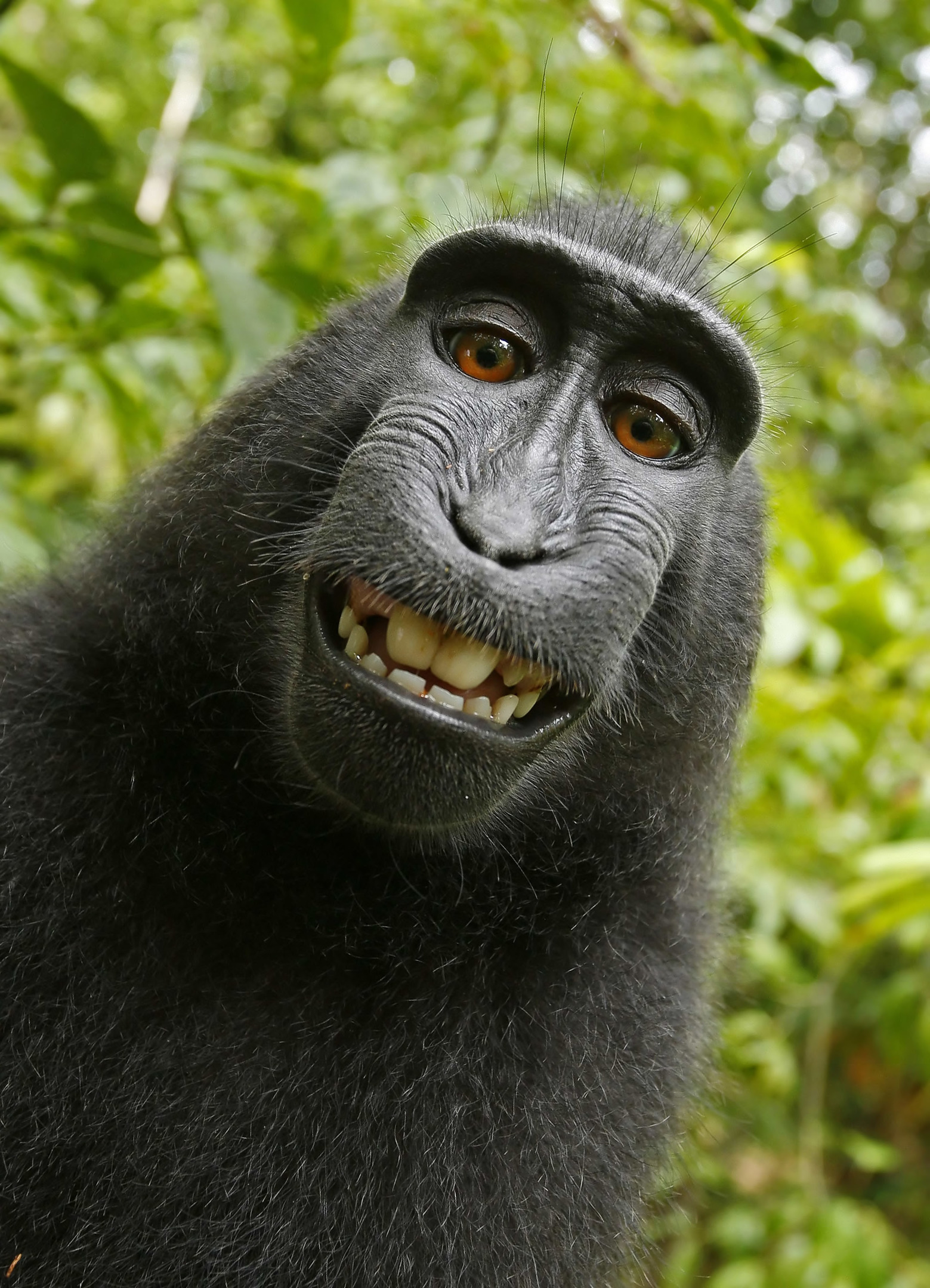
This case is bananas. Continuing a long-running legal scuffle, People for the Ethical Treatment of Animals (PETA) is filing an appeal on behalf of Naruto, an Indonesian crested macaque who snapped a hilarious viral snapshot of himself using photographer David Slater’s camera.
The question at the heart of the matter is who owns the photo: The monkey or the man? Will animal photographers have the same rights as humans? (So far, the courts have said no.)
“When science and technology advance, the law adapts,” said PETA general counsel Jeffrey Kerr in a statement. “There is nothing in the Copyright Act limiting ownership based on species, and PETA is asking for an interpretation of the act that acknowledges today’s scientific consensus that macaque monkeys can create an original work.”
On July 12, PETA’s lawyers will ask the US Court of Appeals for the Ninth Circuit in San Francisco to rule that Naruto is the author and copyright owner of the photos under US Copyright Act.
Slater, a British photographer, was photographing crested macaques in Indonesia in 2011 when he set up a camera on a tripod with a remote trigger.
David Slater with crested black macaques.
“It was my artistry and idea to leave them to play with the camera and it was all in my eyesight,” he told Metro at the time of the work’s creation, claiming that he should get the credit for the indelibly charming image. “I knew the monkeys were very likely to do this and I predicted it. I knew there was a chance of a photo being taken.” The photo was later included in his 2014 book Wildlife Personalities.
In an email to artnet News, David Perle, PETA’s senior media coordinator begs to disagree. Perle argues that Naruto had been exposed to cameras throughout his life, and when he “saw himself in the reflection of the lens, [Naruto] drew the connection between pressing the shutter release and the change in his reflection, and made different facial expressions while pressing the shutter release.”
PETA filed its initial lawsuit on Naruto’s behalf in September 2015. In August 2014, the US Copyright Office had already denied Slater’s quest to register the monkey’s photograph. Slater had accused the Wikimedia Foundation of violating his copyright by publishing the selfie on their website, but the Copyright Office announced that it “will not register works produced by nature, animals, or plants.”
In response to PETA’s initial suit, Slater’s lawyer filed a motion to dismiss the case. US District Judge William Orrick did so in January 2016.
A second selfie taken by a crested black macaque on David Slater’s camera.
“If Congress and the president intended to take the extraordinary step of giving animals standing, they would do so plainly,” Orrick stated. “I don’t see that it can be read as broadly as to go beyond humans when I’m interpreting the Act.”
PETA claims that the crested macaque population has declined by approximately 90 percent over the last quarter century due to hunting and other human activity. If their claim were to succeed, the organization promises to put all proceeds from the sale of photographs toward supporting Naruto and his family.
“If PETA prevails in this lawsuit,” Kerr noted, “it will be the first time that a non-human animal is declared to be a property owner rather than a piece of property.”